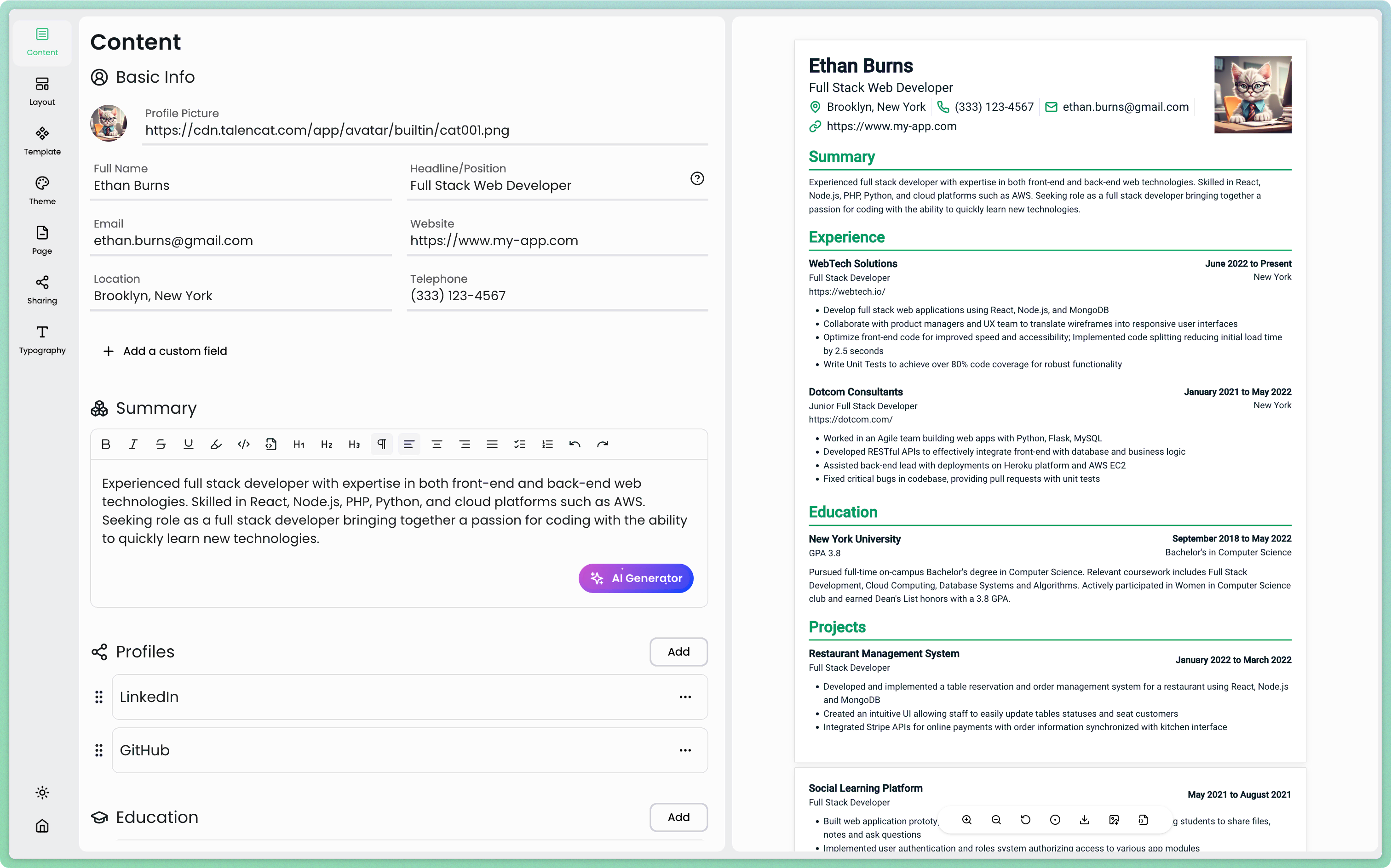Speech-Language Pathology (SLP) is a rewarding and dynamic field that offers numerous opportunities for those passionate about helping others communicate effectively. As the demand for skilled professionals in this area continues to grow, aspiring Speech-Language Pathologists are eager to understand the intricacies of the job market and how to navigate their career paths successfully. This comprehensive guide aims to provide valuable insights into the world of SLP jobs, from understanding the role and its importance to strategies for securing employment and advancing in the field.
Overview of SLP Jobs
Speech-Language Pathology is a critical component of the healthcare and education sectors, focusing on diagnosing, treating, and preventing communication and swallowing disorders in individuals of all ages. As we delve into the world of SLP jobs, it's essential to understand the foundation of this profession and its significance in improving people's lives.
Definition of SLP
Speech-Language Pathologists, often referred to as speech therapists, are highly trained professionals who specialize in the assessment and treatment of communication disorders and swallowing difficulties. Their expertise encompasses a wide range of areas, including:
- Speech disorders (articulation, fluency, voice)
- Language disorders (comprehension, expression)
- Social communication disorders
- Cognitive-communication disorders
- Swallowing disorders (dysphagia)
SLPs work with diverse populations, from infants to the elderly, addressing various conditions such as developmental delays, autism spectrum disorders, stroke, brain injuries, and neurodegenerative diseases.
Importance of SLPs in Healthcare
The role of Speech-Language Pathologists in healthcare cannot be overstated. These professionals play a crucial part in enhancing the quality of life for individuals facing communication and swallowing challenges. Their work contributes significantly to:
- Improving patient outcomes: By addressing communication and swallowing issues, SLPs help patients regain independence and confidence in their daily lives.
- Enhancing social interactions: Effective communication is vital for social connections, and SLPs help individuals overcome barriers that may hinder their ability to interact with others.
- Supporting educational development: In school settings, SLPs work with children to improve their language skills, which is fundamental to academic success.
- Facilitating rehabilitation: For patients recovering from strokes or brain injuries, SLPs are integral to the rehabilitation process, helping them regain lost communication abilities.
- Promoting safety: By addressing swallowing disorders, SLPs help prevent complications such as aspiration pneumonia, which can be life-threatening.
Career Path for Aspiring SLPs
The journey to becoming a Speech-Language Pathologist is well-defined but requires dedication and commitment. Here's an overview of the typical career path:
- Education: Aspiring SLPs must complete a bachelor's degree, followed by a master's degree in speech-language pathology from an accredited program.
- Clinical Experience: During their graduate studies, students participate in supervised clinical experiences to gain hands-on skills.
- Clinical Fellowship Year (CFY): After graduation, new SLPs complete a Clinical Fellowship Year, working under the supervision of a licensed SLP.
- Licensure and Certification: SLPs must obtain state licensure and may pursue national certification from the American Speech-Language-Hearing Association (ASHA).
- Continuing Education: Throughout their careers, SLPs engage in ongoing professional development to stay current with the latest research and techniques.
As aspiring SLPs progress through these stages, they develop the knowledge and skills necessary to excel in this rewarding field. The career path offers opportunities for specialization and advancement, allowing professionals to focus on areas of particular interest or expertise.
Current Job Market for SLPs
Understanding the current landscape of the SLP job market is crucial for those entering the field or seeking new opportunities. The demand for skilled Speech-Language Pathologists continues to grow, driven by factors such as an aging population and increased awareness of communication disorders.
Job Availability and Demand
The job outlook for Speech-Language Pathologists is highly positive. According to the U.S. Bureau of Labor Statistics, employment of SLPs is projected to grow 21% from 2021 to 2031, much faster than the average for all occupations. This robust growth is attributed to several factors:
- Aging population: As the baby boomer generation ages, there is an increased need for SLPs to treat speech and swallowing disorders associated with conditions like stroke and dementia.
- Early identification of speech disorders: Greater awareness and improved screening methods have led to earlier diagnosis of speech and language disorders in children, increasing the demand for SLPs in educational settings.
- Medical advancements: Improved survival rates for premature infants and trauma victims have resulted in more individuals requiring speech therapy services.
- Expanding roles: SLPs are increasingly involved in areas such as literacy development and accent modification, broadening their scope of practice.
Job opportunities for SLPs are diverse, with positions available in various settings, including:
- Schools and educational institutions
- Hospitals and rehabilitation centers
- Private practices
- Nursing homes and long-term care facilities
- Home health agencies
- Research institutions
This variety allows SLPs to choose work environments that align with their interests and career goals.
Salary Expectations
One of the key considerations for those entering the SLP field is the potential for financial stability and growth. Understanding salary expectations can help aspiring professionals make informed decisions about their career paths.
Average Salary for SLPs
The median annual wage for Speech-Language Pathologists was $79,060 in May 2021, according to the U.S. Bureau of Labor Statistics. However, salaries can vary significantly based on factors such as location, experience, and work setting. Here's a breakdown of salary ranges:
- Entry-level SLPs (0-5 years experience): $60,000 - $75,000
- Mid-career SLPs (5-10 years experience): $75,000 - $90,000
- Experienced SLPs (10+ years experience): $90,000 - $120,000+
It's important to note that these figures are general estimates and can fluctuate based on individual circumstances and market conditions.
Factors Influencing Salary
Several factors can impact an SLP's earning potential:
- Geographic location: Salaries tend to be higher in urban areas and regions with a higher cost of living.
- Work setting: SLPs in healthcare settings often earn more than those in educational institutions, though this can vary.
- Education and certifications: Advanced degrees and specialized certifications can lead to higher salaries.
- Experience: As with many professions, more experienced SLPs generally command higher salaries.
- Specialization: SLPs who specialize in high-demand areas (e.g., swallowing disorders or autism) may earn more.
- Employment type: Full-time employees may have different salary structures compared to part-time or contract workers.
Benefits and Employment Conditions
Beyond salary, it's essential to consider the overall compensation package and work environment when evaluating SLP job opportunities.
Health Insurance and Job Perks
Many employers offer comprehensive benefits packages to attract and retain talented SLPs. Common benefits include:
- Health, dental, and vision insurance
- Retirement plans (e.g., 401(k) with employer matching)
- Paid time off (vacation, sick days, personal days)
- Professional development opportunities and funding
- Student loan repayment assistance (in some cases)
- Flexible spending accounts for healthcare and dependent care
Some employers may also offer unique perks such as gym memberships, wellness programs, or tuition reimbursement for advanced education.
Work Environment and Flexibility
The work environment for SLPs can vary greatly depending on the setting. Here are some common aspects of SLP work environments:
- Schedule flexibility: Many SLPs enjoy flexible scheduling options, including part-time work or the ability to set their own hours in private practice.
- Collaborative atmosphere: SLPs often work as part of interdisciplinary teams, collaborating with other healthcare professionals or educators.
- Variety in daily tasks: The nature of SLP work allows for diverse experiences, working with different clients and addressing various communication disorders.
- Potential for remote work: Teletherapy has become increasingly common, offering opportunities for remote work in some cases.
- Physical demands: SLPs may need to assist patients with mobility issues or use specialized equipment, requiring some physical stamina.
- Emotional rewards: Many SLPs find great satisfaction in helping clients improve their communication skills and quality of life.
Understanding these aspects of the work environment can help aspiring SLPs align their career choices with their personal preferences and lifestyle needs.

Strategies for Job Searching as an SLP
Navigating the job market as a new or experienced Speech-Language Pathologist requires a strategic approach. By leveraging various resources and honing your job search skills, you can increase your chances of finding the ideal position that aligns with your career goals and interests.
Networking and Professional Associations
One of the most effective ways to uncover job opportunities and advance your career is through networking and involvement in professional associations.
Importance of Networking
Networking plays a crucial role in the SLP job search process for several reasons:
- Access to hidden job markets: Many positions are filled through personal connections before they are publicly advertised.
- Industry insights: Networking provides valuable information about trends, challenges, and opportunities in the field.
- Mentorship opportunities: Connecting with experienced professionals can lead to mentorship relationships that support career growth.
- Professional development: Networking events often include educational components that can enhance your skills and knowledge.
- Reputation building: Active participation in professional networks can help establish your reputation as a dedicated and knowledgeable SLP.
To build your professional network, consider attending conferences, joining online forums, and participating in local SLP meetups or workshops.
Recommended Professional Organizations
Joining professional organizations can significantly enhance your networking opportunities and provide access to valuable resources. Some key organizations for SLPs include:
- American Speech-Language-Hearing Association (ASHA): The primary professional, scientific, and credentialing association for SLPs in the United States.
- State Speech-Language-Hearing Associations: These organizations focus on state-specific issues and provide local networking opportunities.
- National Student Speech Language Hearing Association (NSSLHA): Ideal for students and recent graduates looking to connect with peers and professionals.
- Special Interest Groups (SIGs): ASHA offers various SIGs focused on specific areas of practice, allowing for specialized networking and knowledge sharing.
- International Association of Communication Sciences and Disorders (IALP): For those interested in global perspectives and international opportunities.
Actively participating in these organizations can provide access to job boards, continuing education opportunities, and a network of professionals who can support your career development.
Utilizing Job Boards
Job boards are a valuable resource for finding SLP positions across various settings and locations. While general job sites can be helpful, focusing on SLP-specific job boards can yield more targeted results.
Overview of SLP-Specific Job Boards
Several job boards cater specifically to Speech-Language Pathologists:
- ASHA Career Portal: Offers a comprehensive listing of SLP jobs across the United States.
- SLP Jobs: A dedicated platform for speech-language pathology positions in various settings.
- SchoolSpring: Focuses on educational positions, including school-based SLP roles.
- TherapyJobs.com: Covers a range of therapy jobs, including SLP positions in healthcare and education.
- Indeed SLP Jobs: While not SLP-specific, Indeed aggregates listings from multiple sources and allows for targeted searches.
Tips for Effective Job Searches
To maximize your success when using job boards, consider the following strategies:
- Use specific keywords: Include terms like "Speech-Language Pathologist," "SLP," or specific areas of expertise to narrow your search.
- Set up job alerts: Many job boards allow you to create alerts for new postings that match your criteria.
- Tailor your resume: Customize your resume and cover letter for each application, highlighting relevant skills and experiences.
- Research employers: Before applying, investigate potential employers to ensure they align with your career goals and values.
- Follow application instructions carefully: Pay attention to specific requirements or preferences stated in job postings.
- Keep your profile updated: If the job board allows for profile creation, ensure your information is current and comprehensive.
- Leverage filters: Use search filters to narrow down results by location, setting, or experience level.
- Check frequently: New job postings can appear daily, so regular checking can help you stay ahead of the competition.
Crafting the Perfect SLP Resume with TalenCat CV Maker
As a Speech-Language Pathologist (SLP), having a well-crafted resume is crucial for landing your dream job. TalenCat CV Maker offers an intuitive platform to create a professional SLP resume that highlights your skills and experience. Follow this step-by-step guide to build a standout resume for your SLP career.
Step 1: Log in to TalenCat CV Maker and click the "+ Create Resume" button in the top right corner to start your SLP resume.

Step 2: Name your resume (e.g., "SLP Professional Resume") and choose whether to start from scratch or use a pre-made example tailored for healthcare professionals.

Step 3: Use the reactive CV editor to input your SLP-specific information. As you type, you'll see your resume take shape in real-time on the right panel.

Step 4: Leverage TalenCat's AI-powered features to enhance your SLP resume. The platform can suggest relevant skills, achievements, and industry-specific terminology to make your resume stand out.

Once you've completed your SLP resume, you can easily export it as a PDF or image file. TalenCat also offers an "online share" feature, allowing you to generate a shareable link for your resume – perfect for quickly sending to potential employers or networking contacts in the speech-language pathology field.
Remember to highlight your certifications, clinical experience, and any specialized skills relevant to speech-language pathology. With TalenCat CV Maker, you'll have a professional, tailored SLP resume in no time, increasing your chances of landing that coveted position in a school, hospital, or private practice.
Crafting an Effective Resume and Cover Letter
Key Components of a Successful Application
Resume:
- Contact Information: Include your full name, professional email, phone number, and location.
- Professional Summary: A brief statement highlighting your key qualifications and career objectives.
- Education: List your degrees, certifications, and relevant coursework.
- Clinical Experience: Detail your internships, clinical rotations, and any relevant work experience.
- Skills: Highlight specific SLP skills, such as assessment techniques, therapy approaches, and familiarity with relevant technologies.
- Professional Memberships: Include affiliations with ASHA and other relevant organizations.
- Continuing Education: List any additional training or workshops you've completed.
Cover Letter:
- Introduction: Clearly state the position you're applying for and how you learned about it.
- Qualifications: Highlight your most relevant skills and experiences that align with the job requirements.
- Passion for SLP: Convey your enthusiasm for the field and the specific role.
- Knowledge of the Employer: Demonstrate that you've researched the organization and explain why you're interested in working there.
- Call to Action: Express your interest in an interview and provide your contact information.
Common Mistakes to Avoid
- Generic applications: Avoid using the same resume and cover letter for every application. Tailor your materials to each specific job.
- Overlooking keywords: Many employers use Applicant Tracking Systems (ATS). Ensure your resume includes relevant keywords from the job description.
- Focusing on duties rather than achievements: Instead of listing job responsibilities, highlight specific accomplishments and their impact.
- Neglecting proofreading: Typos and grammatical errors can significantly harm your chances. Always proofread carefully and consider having someone else review your materials.
- Overloading with jargon: While it's important to demonstrate your knowledge, avoid excessive use of technical terms that may not be familiar to all readers.
- Omitting relevant volunteer experience: If you have limited professional experience, include relevant volunteer work or extracurricular activities.
- Inconsistent formatting: Ensure your resume and cover letter have a consistent, professional appearance.
By focusing on these key components and avoiding common pitfalls, you can create application materials that effectively showcase your qualifications and increase your chances of securing an interview.
Navigating the Job Application Process
Once you've identified potential job opportunities and prepared your application materials, the next step is to navigate the application process successfully. This phase involves preparing for interviews and, for new graduates, understanding the Clinical Fellowship Year (CFY) requirements.
Preparing for Interviews
Interviews are a critical component of the job application process, allowing employers to assess your qualifications and determine if you're a good fit for their organization. Thorough preparation can significantly increase your chances of success.
Common Interview Questions for SLPs
While specific questions may vary depending on the setting and position, here are some common interview questions you might encounter:
- "Can you describe your experience working with [specific population or disorder]?"
- "How do you stay current with the latest research and techniques in speech-language pathology?"
- "Describe a challenging case you've encountered and how you approached it."
- "How do you collaborate with other professionals in a multidisciplinary team?"
- "What assessment tools are you familiar with, and how do you choose which ones to use?"
- "How do you involve families in the therapy process?"
- "Describe your approach to goal-setting and measuring progress in therapy."
- "How do you handle cultural and linguistic diversity in your practice?"
- "What strategies do you use to motivate clients who are resistant to therapy?"
- "How do you manage your caseload and prioritize your time?"
Best Practices for Interview Preparation
To excel in your SLP job interviews, consider the following preparation strategies:
- Research the employer: Familiarize yourself with the organization's mission, values, and services offered.
- Review your clinical experiences: Be prepared to discuss specific cases and outcomes from your internships or previous work.
- Prepare STAR responses: Use the Situation, Task, Action, Result (STAR) method to structure your answers to behavioral questions.
- Practice common questions: Conduct mock interviews with a friend or mentor to refine your responses.
- Prepare questions for the interviewer: Demonstrate your interest by asking thoughtful questions about the role and organization.
- Review your application materials: Be familiar with the content of your resume and cover letter, as interviewers may reference them.
- Dress professionally: Choose attire that is appropriate for the setting and demonstrates your professionalism.
- Bring necessary documents: Have copies of your resume, certifications, and any other relevant documents.
- Be ready for different interview formats: Prepare for potential phone, video, or in-person interviews.
- Follow up: Send a thank-you note or email after the interview, reiterating your interest in the position.
Understanding the Clinical Fellowship Year (CFY)
For new graduates, the Clinical Fellowship Year (CFY) is a critical step in the transition from student to professional. This period allows new SLPs to gain practical experience under the supervision of a licensed SLP.
Overview of CFY Requirements
The CFY typically lasts about nine months and involves working in a clinical setting while providing direct services to clients. During this time, fellows must complete a minimum number of hours of supervised clinical practice, as outlined by ASHA. Key components of the CFY include:
- Supervision: Fellows must work under the guidance of a licensed and certified SLP who provides mentorship and support.
- Clinical Hours: A specific number of direct client contact hours must be completed, which may vary based on state regulations.
- Documentation: Fellows are required to maintain detailed records of their clinical experiences, including assessments, treatment plans, and progress notes.
- Evaluation: At the end of the CFY, the supervising SLP must complete an evaluation of the fellow's performance, which is submitted to ASHA as part of the certification process.
Tips for Success During CFY
- Seek feedback: Regularly ask for constructive feedback from your supervisor to improve your skills and confidence.
- Set goals: Establish specific, measurable goals for your CFY experience to track your progress and development.
- Stay organized: Keep detailed records of your clinical hours, client interactions, and any challenges you encounter.
- Engage in professional development: Attend workshops, conferences, or training sessions to enhance your knowledge and skills.
- Network with peers: Connect with other CFY fellows to share experiences, resources, and support.
- Maintain a positive attitude: Embrace challenges as learning opportunities and stay open to new experiences.
Challenges Faced by SLP Job Seekers
Job Market Saturation
As more individuals pursue careers in Speech-Language Pathology, the job market can become competitive. This saturation may lead to increased difficulty in securing positions, particularly in certain geographic areas or specialized fields.
Balancing Job Expectations with Reality
New graduates may enter the workforce with high expectations regarding job responsibilities, salary, and work-life balance. However, the reality of the job market may not always align with these expectations, leading to potential dissatisfaction.
Tips for Overcoming Job Search Challenges
- Be flexible: Consider a variety of job settings and locations to increase your chances of finding a position.
- Enhance your skills: Pursue additional certifications or specializations to make yourself more marketable.
- Stay persistent: Job searching can be a lengthy process; remain determined and continue applying to positions that interest you.
- Seek support: Utilize career services, mentorship programs, or networking groups to gain insights and encouragement during your job search.
Professional Development and Continued Education
Importance of Certifications and Specializations
Continuing education and obtaining certifications in specialized areas of Speech-Language Pathology can enhance your professional credibility and open doors to new opportunities. Specializations may include areas such as pediatric speech therapy, voice disorders, or swallowing disorders.
Resources for Continuing Education
Online Courses and Workshops
Many organizations offer online courses and workshops that allow SLPs to earn continuing education credits while expanding their knowledge and skills. These resources can be particularly convenient for busy professionals.
Conferences and Networking Events
Attending conferences and networking events provides opportunities for SLPs to learn about the latest research, techniques, and best practices in the field. These events also facilitate connections with other professionals, fostering collaboration and mentorship.
Conclusion
Future Outlook for SLP Jobs
The demand for Speech-Language Pathologists is expected to continue growing, driven by factors such as an aging population and increased awareness of communication disorders. This positive job outlook suggests that opportunities in the field will remain robust.
Encouragement for Aspiring SLPs
For those considering a career in Speech-Language Pathology, the journey may be challenging but ultimately rewarding. By staying committed to professional development, networking, and honing your skills, you can build a successful and fulfilling career in this vital field.




